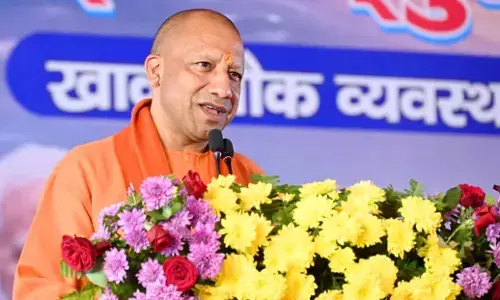Hyderabad City breathes easy

Hyderabad City breathes easy
- In October, normally air quality index stays at alarming levels
- But this year AQI is at moderate levels due to extended monsoon
- Harmful particles in air decline by 40% since March in major areas
Hyderabad: As the city observes intensive spells of rain in the extended monsoon with Indian Meteorological Department (IMD) forecasting heavy rainfall in the three days, the denizens are experiencing pollution-free fresh air.
Officials at TSPCB (Telangana State Pollution Control Board) say that the unexpected rains in the extended monsoon has impacted the air pollution in a positive way, leading to air quality index ( AQI) markings at moderate levels. Around 40 per cent of harmful particles in air have been reduced since March in major areas.
"We are anticipating a positive impact on air quality in this extended monsoon because between June to September we breathe easy every year and from October the air gets filled with deposits of pollutants. But this October, the extended rains have improved the air quality," said D Prasad, Environment Scientist (AIR), TSSPDCL.
"The air quality depends upon the atmospheric conditions like humidity, surfaces etc. Unlike summer, during the rainy season the impact of rains has positive effects on the pollutants present in the atmosphere. Ultra particles remain suspended in the air because of very less mass.
The pollutants released in the atmosphere undergo two to three physical and chemical transformations like condensation, aggregation in the atmosphere on the physical side. It's like a complex situation overall in the atmosphere," he added.
Currently, the city air quality index is reportedly moderate in October, which usually remains at alarming levels. The major sectors that contribute to air pollution are transport, industries, construction activities, biomass and refuse burning, re-suspension of road dust and other activities, however, the air pollution has been drastically down due to the lockdown and now due to extended monsoon.
We are anticipating a positive impact on air quality in this extended monsoon because between June to September we breathe easy every year and from October the air gets filled with deposits of pollutants. But this October, the extended rains have improved the air quality – D Prasad, Environment Scientist (AIR), TSSPDCL
Blessing in Disguise
Rain might ruin a picnic, but when it comes to air pollution, it can actually be a really good thing. This is because, on rainy days, most of the common air pollutants and pollen in the air are washed away, helping to increase the quality of the air. This phenomenon is called Wet deposition.To be more scientific: 'Wet deposition' refers to the natural processes by which material is removed ('scavenged') by atmospheric hydrometeors (cloud and fog drops, rain, snow ) and delivered to the Earth's surface. A number of different terms are used more or less synonymously to describe this phenomenon - such as 'precipitation scavenging', 'wet removal', 'washout', and 'rainout.' (https://blog.breezometer.com/)














